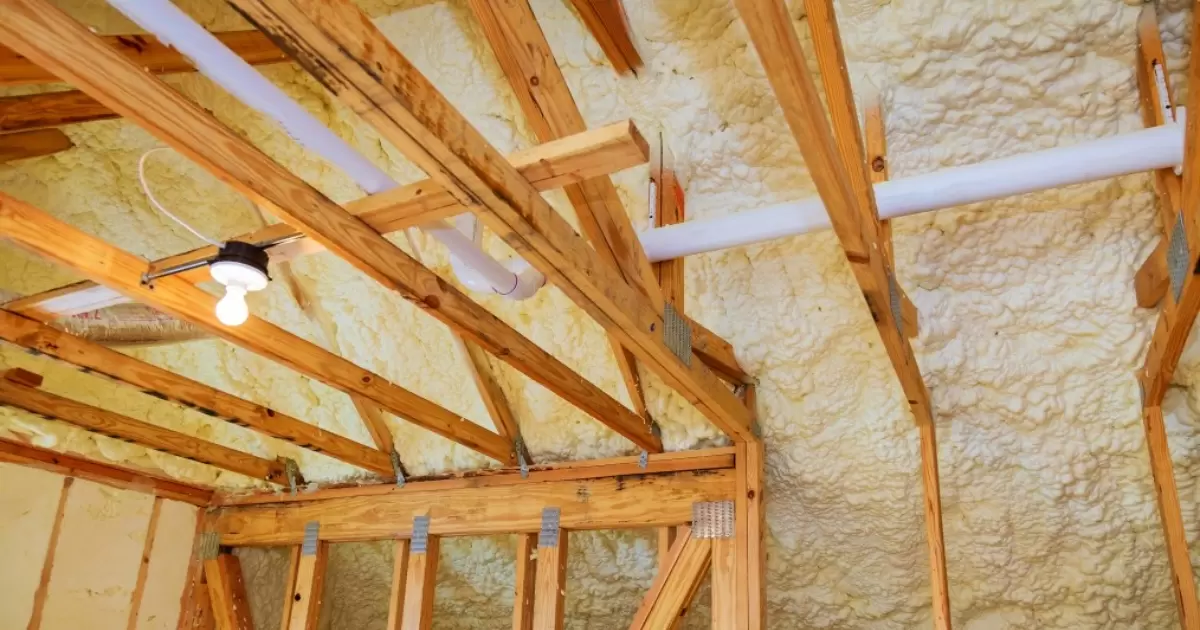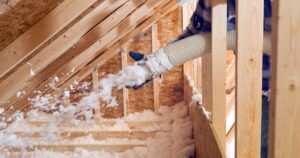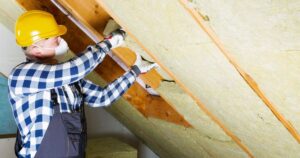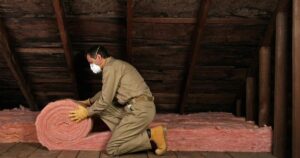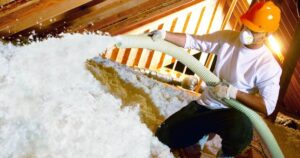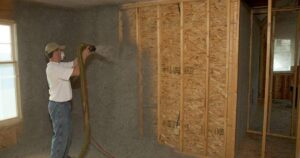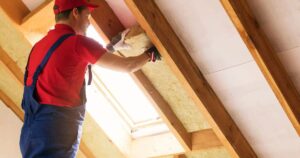Certain home improvements, including attic insulation, might qualify for tax credits or deductions. Tax laws can change, and eligibility criteria can vary, so it’s essential to consult a tax professional or the Internal Revenue Service (IRS) for the most current information.
Is there a tax credit for attic insulation? Writing off the insulation on your taxes can be a possibility under certain circumstances. Typically, residential energy efficiency improvements, such as insulation, may qualify for tax credits or deductions. The specific eligibility criteria, allowable expenses, and the amount you can claim might vary depending on your location and the tax year.
Calculating Tax Credit For Insulation
Calculating tax credits for insulation involves understanding the criteria set forth by the government for eligibility. Generally, tax credits are calculated based on a percentage of the total cost of eligible energy-efficient home improvements, including insulation.
These credits aim to incentivize energy efficiency and can significantly reduce your tax liability. To determine the exact credit amount for your insulation, you’ll need to identify the expenses that qualify and follow the appropriate procedures outlined by the tax authorities.
Who Qualifies For Energy Tax Credits For Insulation?
Insulate an attic is a significant upgrade that can qualify for energy tax credits under certain conditions. Individuals who make energy-efficient improvements to their primary residence, like adding insulation, may be eligible for these credits. The installation of insulation in specific areas, such as the attic, is often considered.
It’s important to consider the type and quality of insulation used, the installation year, and meeting specific energy-saving standards. Always check the current guidelines or consult with a tax professional to ascertain if “insulating an attic” meets the criteria for eligibility for these tax credits.
How to Get an Insulation Tax Credit – Form
To obtain an insulation tax credit, you’ll usually need to complete the appropriate form provided by the tax authorities. The specific form may vary based on your location and the tax year. Generally, it requires detailing the expenses related to insulation installation and providing proof of purchase or installation. Ensuring accuracy and completeness in filling out the form is crucial to claiming the tax credit successfully. Refer to the official government websites or seek professional guidance for the correct form and process.
Climate Control Plan
Developing a climate control plan involves more than just insulation. It encompasses a holistic approach to managing energy consumption and maintaining comfortable indoor temperatures efficiently. Insulation is a fundamental part of this plan, but factors like proper sealing, energy-efficient appliances, and smart thermostats also contribute. Creating a comprehensive strategy tailored to your home’s specific needs helps maximize energy savings and ensures a more comfortable living environment.
How much is the insulation tax credit (2022 and 2023)?
The specific amount for the insulation tax credit varies based on the tax year and is subject to change based on governmental policies and regulations. For 2022 and 2023, the available credit might be different, and it’s essential to consult the updated IRS guidelines or a tax professional to determine the exact amount you can claim for insulation expenses incurred during these specific years.
Insulation rebates 2023
What incentives are included in the Inflation Reduction Act?
The Inflation Reduction Act might include specific incentives or rebates related to insulation improvements in 2023. These rebates could be part of the government’s initiatives to promote energy efficiency and combat rising inflation. It’s important to stay updated with the latest legislation and governmental announcements to understand the incentives included in this act and take advantage of any available rebates for insulation upgrades.
Which insulation products are eligible for the new insulation tax credits?
The eligibility of insulation products for new tax credits often depends on their energy efficiency and compliance with government-set standards. Typically, insulation materials like fiberglass, cellulose, foam boards, spray foam, and others meeting certain criteria might be eligible. Verify the eligibility of specific products by referring to the IRS guidelines or seeking guidance from a professional before making any insulation purchases to ensure they qualify for tax credits.
How do you get the insulation tax credits and rebates?
To secure insulation tax credits and rebates, you need to follow specific procedures outlined by the government. This might involve documenting the expenses, meeting energy efficiency standards, and submitting the necessary forms. Additionally, being aware of any deadlines and staying updated on the available incentives is crucial to ensure you receive the benefits. Seek guidance from a tax professional or refer to the official guidelines for a step-by-step process on how to obtain these credits and rebates.
How can you get the most out of your insulation tax credits?
To maximize your insulation tax credits, consider several strategies. Ensure you’re using eligible insulation materials and follow energy efficiency guidelines. Planning your upgrades in a way that optimizes the benefits and exploring additional energy-saving measures could further enhance the overall savings. Seeking professional advice and staying informed about any new incentives or changes in tax laws can help you make the most of the available credits.
Get a professional to install insulation (and figure out the rebate situation!)—NO upfront cost
Engaging a professional for insulation installation not only ensures the job is done correctly but can also help navigate the rebate situation effectively. Some companies offer programs where they install insulation with no upfront cost, and they assist in handling the paperwork for claiming available rebates or tax credits. This approach not only guarantees proper installation but also eases the administrative burden associated with claiming incentives.
FAQs
Can I write off the insulation on my taxes?
Whether you can write off insulation on your taxes depends on various factors, including the type of insulation, your location, and the current tax laws. In many cases, energy-efficient home improvements, like insulation, can be eligible for tax credits or deductions, but the specifics can vary. Consulting with a tax professional or referring to the latest IRS guidelines is crucial to determine if you can write off insulation expenses on your taxes.
Is there an insulation tax credit for 2022?
For 2022, there might be insulation tax credits available, subject to meeting specific criteria set by the government. These credits aim to incentivize energy-efficient improvements and might cover a portion of the expenses incurred for insulation installation. To ascertain if there is a tax credit available for 2022, it’s important to refer to the most recent IRS guidelines or seek advice from a tax professional to understand the eligibility criteria and claim procedures.
Can You Write Off Insulation on Your Taxes?
Whether or not you can write off the insulation on your taxes often depends on specific criteria outlined by tax authorities. Energy-efficient home improvements, le insulation, can sometimes qualify for tax credits or deductions. However, the eligibility and allowed expenses vary based on your location, the type of insulation, and the tax year. Consulting with a tax professional or referencing the IRS guidelines is crucial to determine if your insulation expenses can be written off on your taxes.
Calculating Tax Credit For Insulation
Calculating the tax credit for insulation involves understanding the rules and regulations set forth by the government. Usually, these credits are determined as a percentage of the total cost of eligible energy-efficient home improvements, including insulation. By identifying the qualified expenses and following the procedures set by tax authorities, you can ascertain the exact credit amount you’re eligible to claim for your insulation upgrades.
Who Qualifies For Energy Tax Credits For Insulation?
Qualification for energy tax credits for insulation is typically available to individuals making energy-efficient upgrades to their primary residences, including insulation improvements. Criteria such as the type and quality of insulation installed, meeting certain energy-saving standards, and the year of installation are often considered. Checking the latest guidelines or consulting a tax professional is crucial to understanding if you qualify for these tax credits.

